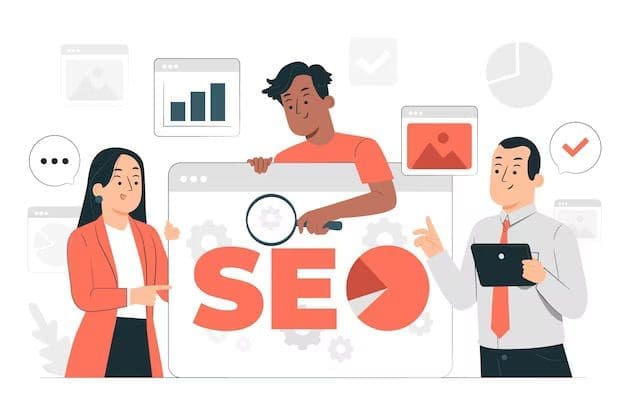While the idea of managing your search engine optimization (SEO) might seem enticing, the expertise of an Albuquerque SEO company is invaluable when it comes to navigating this complex and constantly evolving field.
At WSI Web Enhancers, we possess a deep understanding of algorithms, keyword strategies, and the latest industry trends. In addition to having the necessary expertise and resources, we boast a track record that speaks for itself.
In this blog post, we’ll delve into how SEO experts can propel your online presence to new heights, leaving you free to focus on what you do best – growing your business.
Understanding Search Engine Optimization
Search engine optimization is the key to ensuring your business is discoverable when people search online. In essence, it’s the art of driving organic traffic from search engines like Google to your website. More website visitors often translate into more leads and sales.
There are a lot of different factors that go into SEO marketing, from the keywords you use on your website to the structure of your site and the quality of your content. But don’t worry; you don’t need to be a tech expert to make these strategies work for you.
An SEO company can serve as your trusted partner, handling the technical intricacies and implementing effective strategies to optimize your online presence.
Tools and Resources Used by SEO Agencies
SEO specialists utilize various tools and resources to enhance your online visibility.
Google Analytics
Google Analytics provides valuable insights into website performance and user behavior, enabling agencies to make data-driven decisions on where to allocate their resources for maximum impact.
Google Search Console
Google Search Console offers crucial data on website visibility, indexing issues, and search performance, enabling agencies to fine-tune their optimization strategies and improve search engine rankings.
Bing Webmaster Tools
Bing Webmaster Tools is a free tool that allows agencies to submit your website to Bing for indexing and tracking in search engine results pages (SERPs). This helps agencies drive better results in Bing’s search ecosystem.
The Basics of Search Engine Optimization
Search engine optimization encompasses several crucial techniques used by SEO companies in Albuquerque.
On-Page Optimization
On-page optimization encompasses various strategies, such as optimizing content, metatags, and URL structures, as well as improving site speed and mobile-friendliness to enhance a webpage’s visibility and relevance in search engine results.
Off-Page Optimization
Off-page optimization is the process of optimizing a website for better visibility in SERPs without making any changes to the website itself. This includes activities such as link-building and social media marketing.
Link Building
Link building is the process of creating links from other websites to your own. By cultivating authoritative and relevant backlinks from reputable websites, you can help improve your online credibility.
Keyword Research
SEO specialists utilize keyword research to identify and strategically incorporate the most relevant and high-impact keywords into your online content, ultimately enhancing your visibility and driving organic traffic from search engines.
Original Content
SEO services will include crafting informative, engaging, and keyword-rich content that appeals to target audiences and helps establish you as an authority in your industry. Engaging content also helps drive organic traffic and customer engagement.
Website Structure
SEO firms excel in optimizing your site’s architecture to help search engines index your website correctly. A well-structured website is easy to crawl and makes it easy for search engines to understand the relationship between different pages on your site.
Partner With Our Albuquerque SEO Company for Unparalleled Expertise and Lasting Success
At WSI Web Enhancers, we believe in a personalized approach that aligns our industry-leading strategies with your business’s specific needs, goals, and target audience. With our holistic approach, you can count on a cohesive and consistent brand presence across various platforms.
Our comprehensive range of services caters to all your marketing needs, ensuring a seamless and powerful online presence that drives sustainable growth for your business.
Contact our Albuquerque SEO company for a free consultation today!






